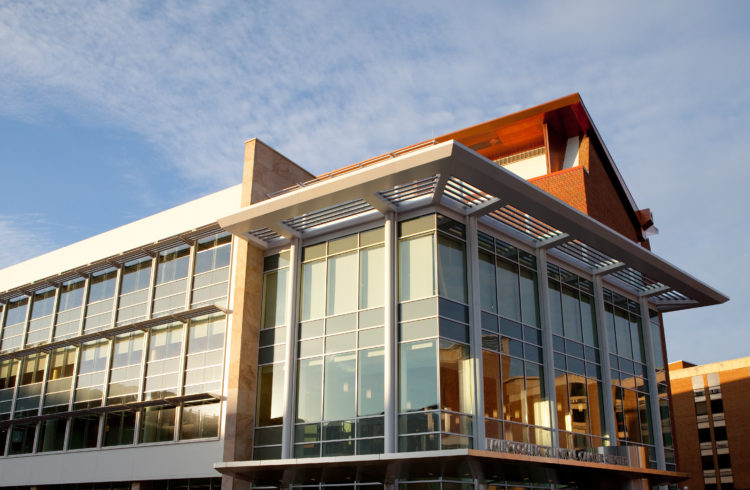
For years, George Forschler knew the mitral valve in his heart was failing and would eventually need repair or replacement. Concerned about the risks associated with open heart surgery – the traditional way to access a mitral valve – he did his best to postpone the inevitable. Forschler, a retired U.S. Air Force Brigadier General who now heads a consulting firm, kept his heart healthy by exercising at the gym and doing weekend chores on his farm near here.
During a recent family trip, Forschler developed a virus which made him feel weak. The weakness quickly progressed and prevented him from doing simple things, like standing while shaving. Then, he passed out at home and was rushed by ambulance to his community hospital. After three days of testing and no diagnosis, he was transferred to the University of Virginia Health System, where doctors determined that his faulty mitral valve was a key factor in his illness.
Because UVA is one of several dozen U.S. medical centers researching the use of a new, minimally-invasive mitral valve repair procedure, Forschler did not have to undergo open heart surgery. “I walked into the hospital on Thursday, had my heart valve repaired and walked back out to my car two days later,” he says. “Feeling well enough to go home so quickly seemed unbelievable to me.”
Forschler suffered from mitral regurgitation (MR), or leaky heart valve, a serious condition that affects an estimated four million Americans and necessitates 500,000 replacement surgeries a year. The mitral valve regulates the flow of blood in a one-way direction from the left atrium (the upper heart chamber that collects blood from the lungs) to the left ventricle (the lower heart chamber that pumps blood to the rest of the body). When a mitral valve leaks, it doesn’t close thoroughly and allows some blood to seep back into the left atrium. To compensate for this backflow, the left ventricle must work harder and harder to keep enough blood circulating through the body.
Besides weakness, patients with mitral regurgitation often experience breathlessness, fatigue and swelling in their ankles and feet due to accumulation of fluid in these areas. Left untreated, MR can cause atrial fibrillation, stroke, heart muscle dysfunction, symptoms of congestive heart failure and an increased risk of sudden death. Unfortunately, no medications specifically treat or cure this condition.
During Forschler’s procedure, UVA interventional cardiologist Scott Lim, M.D., made a small incision in his leg to insert a flexible tube called a catheter. After threading the catheter up to Forschler’s heart, Lim then placed a tiny device, a MitraClip, on his leaking valve. Lim used two clips to get Forschler’s mitral valve to close completely. Performed a month ago, the procedure was a success.
Foschler says, “I now feel like an eight on a scale of one to ten. Once Dr. Lim lets me lift more than 10 pounds, I’m planning to get back to the gym and start feeling like a ten.”
The mitral valve clips were inserted while Forschler was under general anesthesia and his heart continued to beat normally. By contrast, open-heart surgery would have involved a chest incision and the use of a heart-lung machine so his heart could be stopped while the valve was being repaired.
During randomized clinical trials known as EVEREST I and EVEREST II, MitraClip’s safety and efficacy were compared to open heart surgery and the device was successfully used on several hundred patients. The clip is now awaiting FDA approval. In the interim, regulators have allowed its manufacturer to establish a non-randomized continued access registry so doctors at UVA and other participating centers can perform MitraClip repairs on a limited number of patients. Called the REALISM Study, this phase of MitraClip evaluation is open to both high-risk and non-high risk patients and will follow their progress for five years after their procedure.
“UVA was noted as one of the more successful centers for enrollment in the EVEREST II trial, the landmark study that evaluated the MitraClip, and we are very pleased to be participating in this phase of evaluation,” notes Lim, who is serving as UVA’s primary investigator. “Because this approach is a lot less invasive than open heart surgery, patients like General Forschler are healing dramatically faster with fewer complications.”
In addition to Lim, UVA’s co-investigators for the REALISM Study are cardiologist John Dent, M.D. and thoracic surgeon Irving Kron, M.D.


